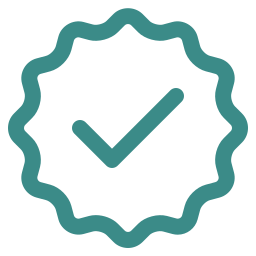Embrace the Power of Movement to Calm Your Mind – Discover How Pilates Combines Gentle Exercises, Breathwork, and Mindfulness to Relieve Stress
The gentle and precise movements of Pilates are your next powerful ally in managing stress. By centering your attention on controlled breaths and deliberate poses, you're not just enhancing your physical strength and flexibility, you're also stepping into a mental space that allows for a profound release of tension.
Engaging regularly in Pilates provides a unique opportunity to reset your mind, often overshadowed by the pace of daily life. But how exactly does this practice translate into mental calmness and reduced stress levels?
Stick around, and you'll discover some compelling insights into making Pilates a pivotal part of your mind-body wellness journey.
Understanding Stress and Its Effects
While stress is a common experience in today's fast-paced world, understanding its effects on your body and mind is vital for managing it effectively. You're not alone in feeling overwhelmed or anxious, these are natural responses to the challenges and pressures of modern life.
However, acknowledging these feelings and finding positive ways to cope, such as exploring the mental benefits of Pilates, can greatly enhance your mental health.
Pilates, a practice rooted in precision and mindfulness, offers more than just physical fitness. It's a gateway to better mental health, providing a unique blend of breathing techniques, controlled movements, and concentration.
Each session using a Pilates chair for sale invites you to focus on the present, guiding your mind away from the clutter of daily stressors.
This mindful engagement is essential in reducing symptoms of anxiety and depression, making Pilates for mental health a valuable tool.
Embracing Pilates as part of your routine can lead to a deeper sense of inner peace and emotional resilience. The practice promotes the release of endorphins, your body's natural mood lifters, which help in combating stress and fostering a sense of belonging and community.
As you regularly engage in Pilates, you'll notice a shift in how you handle stress - it won't disappear, but you'll be better equipped to manage it with grace and effectiveness.
An Overview of Pilates
Since its inception in the early 20th century, Pilates has evolved into an all-encompassing exercise system that emphasizes the balance of body, mind, and spirit. As you commence on this journey, you'll discover that Pilates isn't just about physical fitness, it's a gateway to enhancing your mental wellness and overall quality of life.
Pilates is structured around the idea of mindful movement. With each exercise, you're encouraged to focus deeply on your breath, alignment, and the quality of each movement. This deliberate practice helps in nurturing a heightened sense of body awareness, which is key to both physical and mental balance.
The benefits of Pilates are vast and can resonate through all aspects of your life. Here's how you stand to gain:
-
Improved Flexibility and Strength
Pilates involves a range of dynamic movements on the Peak Pilates reformer that stretch and strengthen the muscles without adding bulk. This can lead to improved overall flexibility, better posture, and stronger core muscles.
-
Enhanced Mental Focus
Each Pilates session requires you to concentrate on your breathing and the precise movements of your body. This practice of mindfulness can improve your concentration and mental clarity.
-
Increased Energy Level
Regular Pilates practice boosts your circulation and stimulates the spine and muscles, invigorating your body and mind. You'll often leave a session feeling more energized and less mentally fatigued.
Embrace Pilates as more than just a workout. It's a community that supports each other in pursuit of better health.
The Mind-Body Connection in Pilates
At the core of Pilates, you'll find a profound connection between mind and body that sets it apart from many other forms of exercise. This holistic approach isn't just about physical fitness, it's about nurturing your mental and emotional well-being through precise, controlled movements.
Engaging in BASI Reformer Pilates, you're not only enhancing your physical strength and flexibility but also boosting your mental clarity and focus.
Let's explore the benefits of Pilates reformer, a specialized apparatus that enhances this mind-body connection.
The reformer's unique structure—a sliding carriage, resistance springs, and adjustable bars—enables you to perform a wide range of movements with greater control and efficiency.
This specificity helps you become more aware of your body's alignment, balance, and coordination, which are vital for both physical and mental health.
When you practice Pilates reformer exercises, you're required to concentrate intensely on your breathing and the movements of your muscles. This concentration draws your attention away from life's stressors and brings you into the present moment, a practice known as mindfulness.
Benefits of reformer Pilates include improved posture and muscle tone, but they also extend to reduced mental tension and enhanced self-awareness.
As you continue to practice, you'll notice that Pilates isn't just a workout routine, it's a pathway to a more connected and conscious life.
You become part of a community that values deep health, where every exercise enriches your understanding of your body and mind, making you feel more grounded and integrated.
How Pilates Reduces Stress
Building on the connection between mind and body fostered by Pilates, it's clear how this practice greatly reduces stress.
When you're looking for a way to unwind and manage your daily pressures, Pilates can be a transformative tool. It's not just about physical fitness, it's a pathway to mental clarity and calm.
Here are three key ways that engaging in Pilates can help alleviate stress:
-
Mindful Movements
Pilates requires precision and focus, which means you need to be fully present during each exercise.
This mindfulness helps detach from daily worries as you concentrate solely on your body's movements. Whether you buy Pilates reformer each session acts as a mental reset.
-
Breathing Techniques
Controlled breathing is central to Pilates. You'll learn to breathe deeply through the diaphragm, which helps reduce anxiety and stress levels.
This type of breathing not only keeps you calm during the workout but also teaches you how to maintain tranquility in stressful situations outside of class.
-
Community Support
Joining a Pilates class at a studio near you fosters a sense of community. Finding 'reformer Pilates near me' can connect you with like-minded individuals who are also on their journey to better health.
This support system can make you feel more grounded and less isolated.
Benefits of Pilates for Mental Health
Beyond reducing stress, Pilates offers considerable benefits for your mental health. As you engage in the rhythmic, flowing exercises on our Peak Fit Reformer, you're not just enhancing your physical strength and flexibility, you're also starting on a journey to a more resilient mind.
Firstly, Pilates requires your full attention. Each move demands focus on your breath and body alignment, which naturally shifts your mind away from daily worries and into the present moment.
This mindfulness practice can help decrease symptoms of anxiety and depression, making you feel more grounded and calm. It's like giving your brain a mini-vacation every time you roll out your mat.
Moreover, regular Pilates practice improves your sleep quality. Better sleep not only rejuvenates your body but also sharpens your mind, enhancing your mood and cognitive functions throughout the day.
You'll find yourself handling stressful situations with more ease and clarity.
Another key aspect is the community you find in Pilates classes. Whether it's in-person or online, you become part of a supportive group, sharing experiences and growth.
This sense of belonging can appreciably uplift your spirits and combat feelings of isolation or loneliness.
Lastly, the physical achievements you gain from Pilates—like increased flexibility, balance, and overall strength—boost your self-esteem. Every session adds to your confidence, not just in what your body can do, but in your inherent worth.
Incorporating Pilates Into Your Routine
Starting a Pilates routine can seem intimidating, but with a few simple strategies, you'll easily integrate this beneficial practice into your daily life.
Whether you're a busy professional, a parent juggling multiple responsibilities, or someone just looking for a mental health boost, Pilates can fit into your schedule and become a supportive part of your wellness journey.
Here are three effective ways to incorporate Pilates into your daily routine:
-
Set Realistic Goals
Start with short, manageable sessions. Even 10 minutes a day can make a difference. Gradually increase the duration as you become more comfortable and confident in the exercises.
-
Join a Community
Whether it's a local class or an online forum, connecting with others who practice Pilates can greatly enhance your experience. You'll gain motivation, support, and valuable tips as you share your journey and progress.
-
Integrate Pilates with Daily Activities
Use moments throughout your day for Pilates. Try doing some stretches after your morning coffee or a quick session before bed. This approach helps make Pilates a natural part of your life rather than a chore.
The Principles of Pilates
Understanding the core principles of Pilates will greatly enhance your practice and allow you to reap more profound benefits.
As you begin, remember that Pilates isn't just a series of movements, it's a pathway to better mental and physical health, built on foundational principles that guarantee every motion is impactful.
Firstly, concentration is key.
You need to focus on each movement, connecting your mind and body. This mental focus will clear out stress as you're forced to live in the moment, fully engaged with your body's actions.
Breathing is another principle you can't overlook. Pilates teaches you to breathe deeply, which not only oxygenates your muscles but also reduces stress levels.
You'll learn to inhale and exhale fully, using breath to power through each exercise.
Control is a central theme in Pilates. Every exercise should be performed with the utmost control to avoid injury and maximize effectiveness.
This discipline in movement translates to greater control over your stress and reactions in daily life.
Precision in Pilates means attention to alignment and detail. Each posture and movement should be executed with care to benefit fully. This careful attention can help you fine-tune your awareness both in and out of class.
Lastly, flow guarantees your movements are smooth and seamless, linking breath and motion.
This fluidity can bring a sense of calmness, reducing feelings of fragmentation in your daily life.
Frequently Asked Questions
Can Pilates Improve Sleep Quality?
Yes, practicing Pilates can indeed improve your sleep quality. By focusing on controlled movements and breathing, doing Pilates on a Lagree M3 helps reduce stress and anxiety, which are often barriers to good sleep.
As you strengthen your core and improve your flexibility, you'll likely notice a more restful night. Give it a try and see how refreshed you feel!
Are There Age Restrictions for Practicing Pilates?
Absolutely, there are no age restrictions for practicing Pilates! You can start at any stage of your life. Pilates is incredibly adaptable, making it perfect for you whether you're young or aging gracefully.
It focuses on core strength, flexibility, and overall well-being, which are beneficial at any age.
Just tailor the exercises to your comfort and capability, and you'll find it's a welcoming community that supports everyone's journey to better health.
What Are the Risks of Pilates for Beginners?
Venturing into Pilates, you might wonder about the risks.
Initially, muscle strains or overstretching can occur if not guided properly. It's essential to start slow, listen to your body, and find an experienced instructor who tailors the exercises to your fitness level.
Remember, everyone starts somewhere, and by joining this community, you're not alone. Embrace each session as a step towards better health, ensuring you're supported every step of the way.
How Does Pilates Compare to Yoga in Stress Management?
Pilates and yoga both excel in stress management, but they've different approaches. You'll find that Pilates focuses more on physical conditioning, strengthening your core, and improving your overall body awareness.
Yoga, on the other hand, often incorporates more spiritual elements and deep breathing techniques that enhance relaxation. Both can greatly reduce your stress, so you might want to try each and see which resonates better with your personal wellness goals.
Can Pilates Help With Anxiety Disorder Symptoms?
Absolutely, Pilates can be a game-changer for managing anxiety disorder symptoms!
By focusing on controlled breathing and mindful movements, you'll bring a profound sense of calm to your mind.
Imagine transforming tension into tranquility with each stretch and breath. Join the community of Pilates enthusiasts who find solace in the rhythm of their routines. You're not alone, and this practice could be your stepping stone to a more peaceful daily life.
Give it a try!
Conclusion
So, why not roll out your mat and give Pilates a whirl? Embracing this practice can be your golden key to revealing a calmer, more centered version of yourself.
By weaving Pilates into your daily fabric, you'll not only bolster your mental and physical resilience but also join a supportive community. Remember, each breath and movement in Pilates is a step towards serenity.
Take charge of your wellness journey today—your mind will thank you tomorrow.




